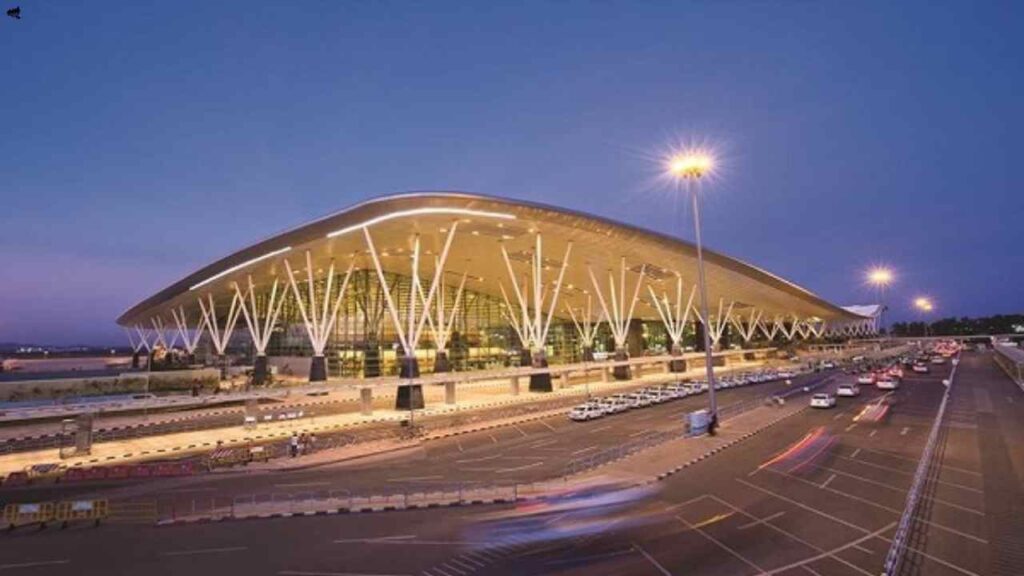Bengaluru Kempegowda International Airport Achieves Historic Milestone: Asia’s First to Receive ACI’s Prestigious Level Five Accreditation
Bengaluru Kempegowda International Airport (BLR) has made history by becoming the first airport in Asia to receive the coveted Level Five accreditation from the Airports Council International (ACI) under its Airport Carbon Accreditation (ACA) program. This recognition is not only a testament to the airport's commitment to environmental sustainability but also a significant milestone in Asia's aviation sector. In a world increasingly focused on sustainability, this achievement places BLR at the forefront of green airport initiatives, highlighting its leadership in reducing carbon emissions and promoting sustainable practices.
The ACI Airport Carbon Accreditation: A Brief Overview
The Airports Council International's (ACI) Airport Carbon Accreditation (ACA) program is the global standard for carbon management at airports. The program provides a comprehensive framework for airports to measure, manage, and ultimately reduce their carbon emissions. The ACA program is structured into six levels of accreditation, ranging from "Mapping" at Level 1 to "Transition" at Level 6.
The program evaluates airports on various parameters, including carbon management processes, energy efficiency measures, stakeholder engagement, and offsetting residual emissions. Achieving Level Five, known as "Optimization," is a rigorous process that requires airports to not only reduce their direct emissions but also to engage with third parties such as airlines, ground handlers, and other stakeholders to reduce their carbon footprint. This level signifies that the airport has optimized its operations to achieve substantial carbon reductions across all scopes.
ALSO READ: Jungkook’s First Documentary
Bengaluru's Journey to Level Five Accreditation

Kempegowda International Airport's journey to achieving Level Five accreditation has been marked by a series of strategic initiatives aimed at reducing its environmental impact. Over the years, the airport has implemented a range of measures designed to minimize its carbon emissions, improve energy efficiency, and promote sustainability among its stakeholders.
One of the key initiatives undertaken by BLR was the transition to renewable energy sources. The airport has significantly reduced its reliance on conventional energy by increasing the use of solar power. In fact, a substantial portion of the airport's energy requirements is now met through solar power, which has greatly contributed to reducing its carbon footprint.
Additionally, BLR has invested in energy-efficient infrastructure, including LED lighting, energy-efficient cooling systems, and automated building management systems that optimize energy use. These measures have not only reduced energy consumption but also lowered operational costs, demonstrating that sustainability and economic efficiency can go hand in hand.
Another significant step taken by the airport was the introduction of a comprehensive waste management system. This system focuses on reducing waste generation, increasing recycling rates, and promoting the use of eco-friendly materials. By implementing these practices, the airport has managed to reduce its environmental impact while also engaging passengers and stakeholders in its sustainability efforts.
Furthermore, Kempegowda International Airport has been proactive in engaging with airlines, ground handlers, and other partners to ensure that they adopt similar sustainability practices. This collaborative approach has been crucial in achieving the Level Five accreditation, as it requires a collective effort from all stakeholders involved in airport operations.
The Global Significance of BLR's Achievement

Bengaluru's Kempegowda International Airport's achievement is not only a significant milestone for the airport itself but also for the entire Asian aviation industry. In a region where aviation is rapidly growing, with increasing air traffic and expanding airport infrastructure, BLR's accomplishment sets a benchmark for other airports to follow.
The recognition by ACI highlights the growing importance of sustainability in the aviation industry, particularly in Asia, where the demand for air travel is expected to continue rising. As one of the leading airports in the region, BLR's commitment to reducing its environmental impact serves as an example for others to emulate.
This achievement also aligns with India's broader goals of reducing carbon emissions and promoting sustainable development. As one of the world's fastest-growing economies, India faces the dual challenge of meeting its development goals while addressing environmental concerns. The success of Kempegowda International Airport in achieving Level Five accreditation demonstrates that it is possible to balance growth with sustainability.
The Future of Sustainable Aviation in Asia
Kempegowda International Airport's success in achieving Level Five accreditation marks a significant step forward in the global push for sustainable aviation. As other airports in Asia and around the world look to reduce their carbon footprints, BLR's achievement serves as a blueprint for how to achieve substantial carbon reductions while maintaining operational efficiency.
The aviation industry is a major contributor to global carbon emissions, and airports play a crucial role in mitigating this impact. By adopting best practices in energy management, waste reduction, and stakeholder engagement, airports can significantly reduce their environmental impact. Bengaluru's Kempegowda International Airport has demonstrated that with the right approach, it is possible to achieve these goals.
In the coming years, it is likely that more airports in Asia will strive to achieve higher levels of accreditation under the ACA program. As the region continues to develop, there will be increasing pressure on airports to adopt sustainable practices. Kempegowda International Airport's leadership in this area positions it as a model for other airports in Asia and beyond.
Conclusion
Bengaluru's Kempegowda International Airport's achievement of ACI's Level Five accreditation is a monumental milestone in the journey toward sustainable aviation. As the first airport in Asia to receive this recognition, BLR has set a new standard for environmental stewardship in the aviation industry. This accomplishment is not only a testament to the airport's commitment to sustainability but also a significant contribution to the global effort to reduce carbon emissions.
As other airports around the world take note of BLR's success, it is clear that the future of aviation lies in sustainable practices. Kempegowda International Airport's leadership in this area serves as an inspiration for the entire industry, showing that with determination and collaboration, it is possible to achieve significant environmental goals while maintaining operational excellence. As we look to the future, BLR's achievement will undoubtedly be remembered as a pioneering step in the evolution of green aviation.














1 comment